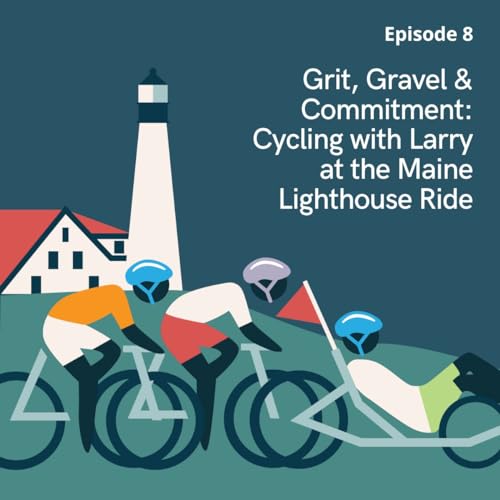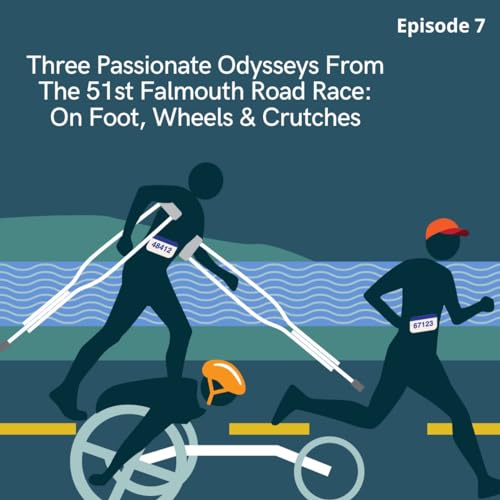In this season two episode, Generational Gene details the serious risk of colon cancer and his two pronged approach of cycling and weight loss against three related medical issues– obesity, diabetes, and cancer, all of which run in his family. This builds upon our season one episode where Gene described his choice of cycling to help manage blood sugar and hold off diabetes. “Some days it feels like your pedal to save your life,” Gene told us, “and in a lot of ways, you really are.” Now a high school superintendent, Gene is also a former biology teacher. “One of the things I’ve learned in the last couple years,” he tells us after a short training ride, “is that cellulose and fat tissue is biologically active.” That point is echoed by our medical expert this episode, Dr. Chika Anekwe of Mass General Brigham and Harvard Medical School, who adds that “the signals that fat cells send out can be carcinogenic, or cancer-causing.” On the dietary/weight-loss front, Gene proudly recounts a story from some years ago where he lost 42 pounds in three months through crash dieting, winning a bet from a close friend. Soon after, though, he reverted to his original weight– like so many other dieters have experienced after initial weight loss. “And that has a lot to do with this concept of the set point,” Dr. Anekwe explains, “No matter what you do to lose that weight, to bring it down, it always wants to go back to that set point.” Challenges abound for Generational Gene on the exercise road, too. Gene participates in the annual Pan Mass Challenge, a 200-mile bike ride across Massachusetts benefiting cancer research at the Dana Farber Institute. But a training accident in the spring kept him off the bike with a hamstring injury for several important weeks. “I just lost control of the bike and then just went down on the road,” he recalls. “And then I saw that the pedal was in the road. And I was like, man, the pedal snapped.” Will Gene have the stamina for the 100-mile Saturday leg of the PMC? Will his new bike pedals support the effort? And how about that long term, often uphill challenge of losing weight for diabetes and cancer prevention? Tune in for chapter two of Generational Gene’s body odyssey, as he pushes back against a family history of diabetes and cancer. With expert commentary from Obesity & Preventive Medicine Physician, Dr. Chika Anekwe of MassGeneralBrigham and Harvard Medical School. My Body Odyssey is a Fluent Knowledge production. Original music by Ryan Adair Rooney. Show Notes: Experts: Name: Dr. Chika Anekwe Resources: NIH: Overweight & Obesity Statistics Healthline: Obesity Facts Role of Physical Activity for Weight Loss and Weight Maintenance Acute and Chronic Effects of Exercise on Appetite, Energy Intake, and Appetite-Related Hormones: The Modulating Effect of Adiposity, Sex, and Habitual Physical Activity Dietary Approaches to the Treatment of Obesity Protein for Life: Review of Optimal Protein Intake, Sustainable Dietary Sources and the Effect on Appetite in Ageing Adults Optimal Diet Strategies for Weight Loss and Weight Loss Maintenance Recent advances in understanding body weight homeostasis in humans Long-term weight loss maintenance Is there evidence for a set point that regulates human body weight? Obesity and Set-Point Theory Cell biology of fat storage Familial Adenomatous Polyposis Colorectal Cancer in African Americans: An Update
Show More
Show Less
 29 mins
29 mins 28 mins
28 mins 21 mins
21 mins 28 mins
28 mins 15 mins
15 mins 25 mins
25 mins 23 mins
23 mins 12 mins
12 mins
